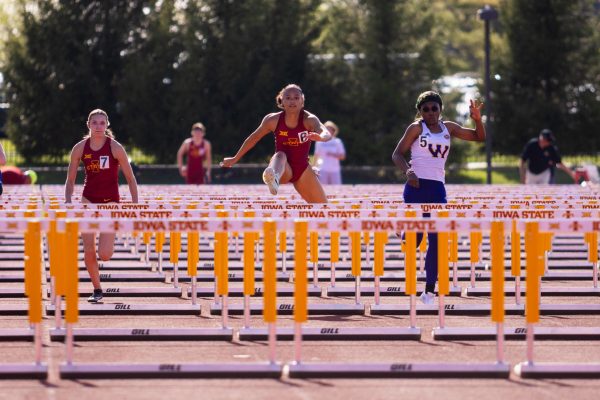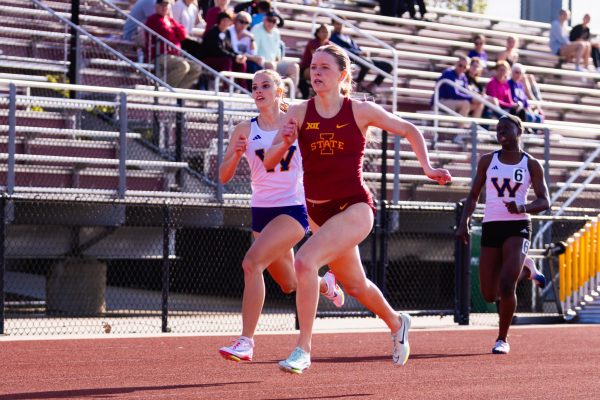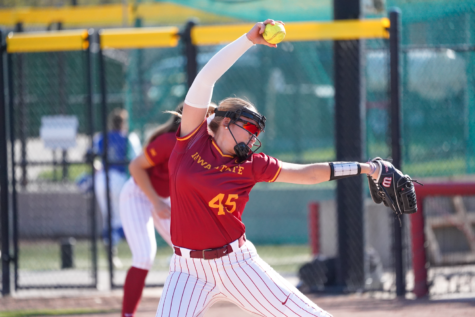Athletic ticket prices raised due to tuition increases, cut budget
April 30, 2004
Student ticket prices for the upcoming year have been announced, with a slight increase in the cost of attending Cyclone home athletics nearly across the board.
“The cost of doing business has gone up for us on an annual basis in all of our areas, as it has for many units on campus,” said Frank Nogel, associate athletics director for external affairs.
“We have to adjust our prices on an annual basis and look [at] No. 1, what is the demand for our tickets, and No. 2, and more importantly, how can we continue to fund a broad-based athletics program and still meet our financial obligations.”
Price increases are not drastic, with the cost of an all-sport pass going up $20 to $185. Football-only season tickets will now be $75, up $10 from last year, and the cost of a men’s basketball-only package rises from $80 to $95.
Tickets for women’s basketball and for an Olympic sports pass remain the same.
Part of the reason for the ticket increase is a rise in the university’s tuition costs.
“With tuition increases, it not only affects the students, it affects the athletic department,” said Jared Sturtewagen, athletic ticket manager. “In order to cover our costs, we had to raise our ticket prices.”
For every athlete who receives a scholarship, the athletic department is required to foot the bill for his or her education.
“I think there are a lot of people who don’t realize that the athletic department pays for the [athletes’] scholarships,” said Tom Kroeschell, associate athletics director for media relations. “We write a check for every scholarship we have, and it goes into the university’s general fund.”
With more than 400 athletes on scholarship, a tuition increase hits the athletic department in the place it hurts most — the pocketbook.
In the 1998 fiscal year, the ISU athletic department paid $2.75 million in scholarships, Kroeschell said. During the last fiscal year, however, the department contributed $4.95 million despite offering two fewer sports.
Other factors are also considered before raising ticket prices.
“Costs go up, not only in tuition increases [but in] insurance, travel needs [and] annual cost of living adjustments,” Nogel said.
“It’s not like this $10 increase [in football tickets] is a windfall for the department.”
Though the prices have gone up, Nogel maintains the athletic department does everything it can to keep prices as low as possible.
“We sit down as a group every year and evaluate all of our ticket prices, and believe me, it’s not a perfect science,” Nogel said. “We don’t go in thinking, ‘How much can we charge the public and students for tickets?’ We actually look at the opposite and say, ‘What is the least amount we can charge for tickets and continue to balance our budget and offer a broad-based program that the university is proud of?'”
Even though prices are increasing, Iowa State is one of the more affordable universities as far as student tickets are concerned.
Football season tickets at Iowa were $105 last year and Hawkeye basketball tickets were $180, more than twice the price of admittance to last season’s Cyclone games.
In comparison to the Big 12, an all-sport pass at Missouri costs $205 and season football tickets at Oklahoma and Nebraska cost $120 or more, with Kansas State charging $143 for season tickets.
Cyclone tickets have only been on sale for a couple weeks, and the ticket office reports no problems with the new prices.
“We haven’t been getting feedback from students that we’ve raised the prices too high,” Sturtewagen said.
“I don’t think price is going to affect the sales.”
















